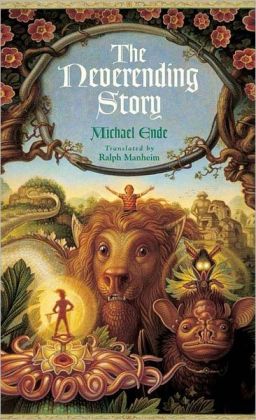Show of hands—who’s seen The Neverending Story? Okay, great. Now, who’s actually read the book?
An 80s children’s classic, chances are you’ve seen the movie or at least heard of it. And if you’re a child of the 80s like me, it may very well have a treasured place in the corner of your heart reserved for your favorite childhood nostalgia. While I loved the movie as a kid, it was only years later as an adult, when I chanced to pick up a copy of the book at my local library, that I learned there’s far more to the story than what I saw on the screen.
Sometimes all it takes for a book to hook us is a sentence. A phrase, a passage, or simply an idea that latches onto our minds and won’t let go. For me, that moment came a third of the way into the book, when Gmork tells Atreyu the secret of what happens to Fantasticans who are sucked through the Nothing into the human world.
“That’s right—and when you get to the human world, the Nothing will cling to you. You’ll be like a contagious disease that makes humans blind, so they can no longer distinguish between reality and illusion. Do you know what you and your kind are called there?”
“No,” Atreyu whispered.
“Lies!” Gmork barked.
 It was this moment when I first realized that The Neverending Story isn’t simply an imaginative tale; it’s a tale about the nature of imagination itself. What it means for us as humans to dream, to hope, and especially to wish.
It was this moment when I first realized that The Neverending Story isn’t simply an imaginative tale; it’s a tale about the nature of imagination itself. What it means for us as humans to dream, to hope, and especially to wish.
Wish fulfillment becomes a huge theme in the second half of the book. The main character, a human boy named Bastian, is given a great gift: a gem called AURYN with the ability to grant any and all of his wishes. On the back of AURYN is inscribed a single line: Do What You Wish. Armed with the gem, Bastian sets off to do just that. But what he eventually finds is that doing what you wish isn’t nearly as simple or easy as it seems.
Don’t be fooled into thinking this is merely a children’s fun adventure tale. Through Bastian, Michael Ende explores adult themes such as power—its usage, consequences, and ability to corrupt; freedom, and what true freedom really requires; the power of names, including issues of identity and memory; and the journey we all take to discover our heart’s true desires. As the great lion Grograman says:
“Only a genuine wish can lead you through the maze of the thousand doors. Without a genuine wish, you just have to wander around until you know what you really want. And that can take a long time.”
Is this not true of all of us at some point?
I often look back fondly on books I read in the past, recalling how much I enjoyed this one or that, but without really remembering much about them. Not so with this book. When I think back on The Neverending Story, I recall the haunting conversation between Atreyu and Gmork about the nature of human fantasy; the dark side of AURYN as it slowly steals Bastian’s memories away even as it fulfills his every wish; and the hopeful moment Bastian pulls an image of the father he forgot from the Picture Mine. For these scenes are embedded with ideas about the human experience, and this is what ultimately makes this story not just worth reading, but worth remembering.
This article was originally published May 28, 2015 as part of our That Was Awesome! series
Margaret Fortune wrote her first story at the age of six and has been writing ever since. She lives in Wisconsin. Her first novel, Nova, is available from DAW.









